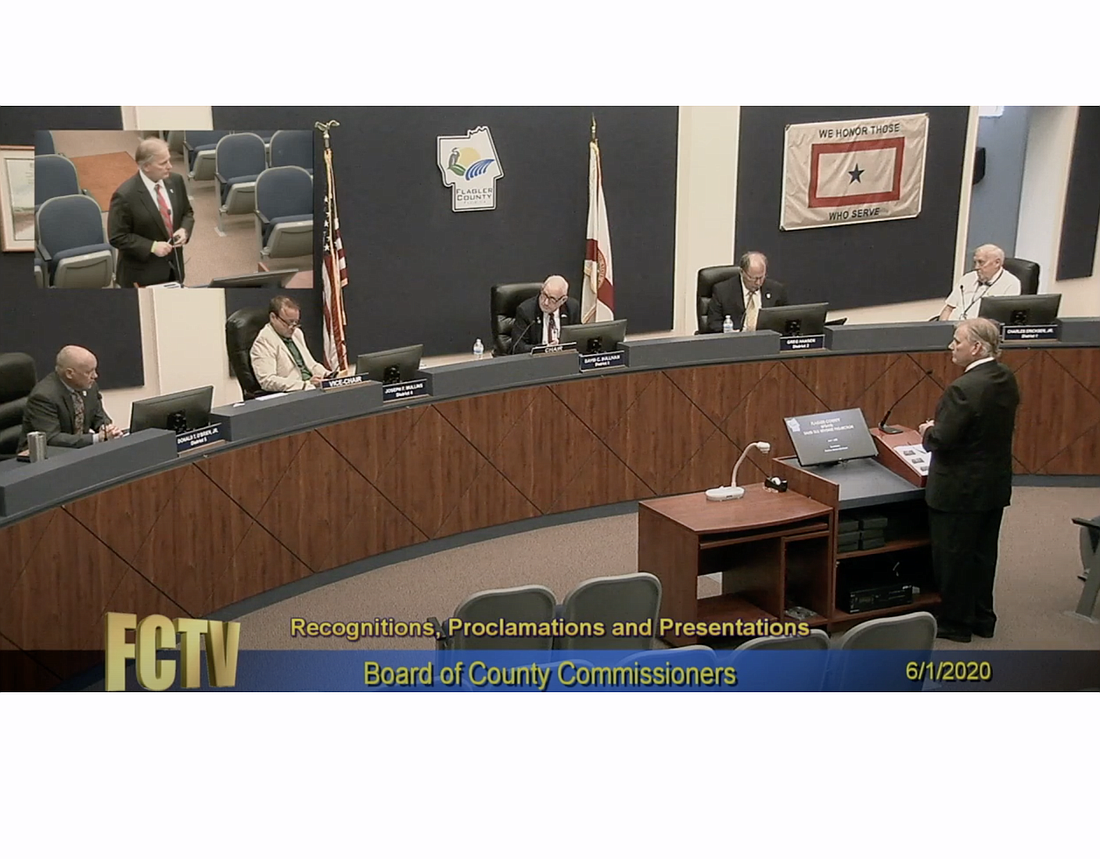- April 24, 2024
-
-
Loading

Loading

COVID-19's impact on sales tax collections is expected to leave Flagler County $1.2 million short of what it had budgeted for the 2020 fiscal year, Flagler County Financial Services Director John Brower told county commissioners during a June 1 commission meeting.
"We knew that they were going to make reductions — whatever impacts they had they were going to pass along to us, to the county — what we didn't know was the amount."
— JOHN BROWER, Flagler County Financial Services director
The reduced sales tax revenue is also expected to offset a predicted 5% property value increase in fiscal year 2021, Brower said, but the county is preparing a tentative fiscal year 2021 budget with no property tax increase.
"Even with the reduced revenue, we're going to figure it out," he said.
The real financial impact to the county is in the county's General Fund, Brower said.
State sales tax revenues in Florida were down 50% in April and are expected to have been down about 50% in May and June, according to state officials, Brower said. The revenues are calculated and passed along to counties about two months after they're received.
Brower said the county's Financial Services staff had planned for significant reductions.
"We've been talking about that all along" he said. "We knew that they were going to make reductions — whatever impacts they had they were going to pass along to us, to the county — what we didn't know was the amount."
The county had expected about a 50% drop in the revenues it receives from the state's first two months of collections during the pandemic — in other words, from the money the state collected in April and May and which would be distributed to the county in June and July. It had expected a 40% reduction in the money the county receives from the state in August, "thinking that in June things would be lightening up a little bit," he said. "That remains to be seen."
The county expects that reductions in the sales tax revenue received by the county will gradually decrease until they're about 10% by December.
"In large part, the impact to us has already been accounted for [fiscal year] 20 and going into [fiscal year] 21," Brower said. "While that's good for planning, it still hurts. It's still real money that we're not getting, and we have to make adjustments for that."
Strong collections during the first half of the year have helped mitigate the financial impact of the virus on county revenues, he said.
"The first six months of the FY20 fiscal year was coming in higher than normal — we got 10%-12% higher than what we budgeted — so the impact is not as great as it could have been if we weren't doing so well before the COVID hit," Brower said.
County Commissioner Donald O'Brien said that the Florida Association of Counties has suggested that counties may be able to use CARES Act (the Coronavirus Aid, Relief, and Economic Security Act) money to offset revenue declines, not just to tackle increased expenses.
"That would go a long way towards chipping away at this deficit we're projecting," O'Brien said.
Brower said he's planning as if the county isn't going to receive that money, and O'Brien said he believed that was prudent.